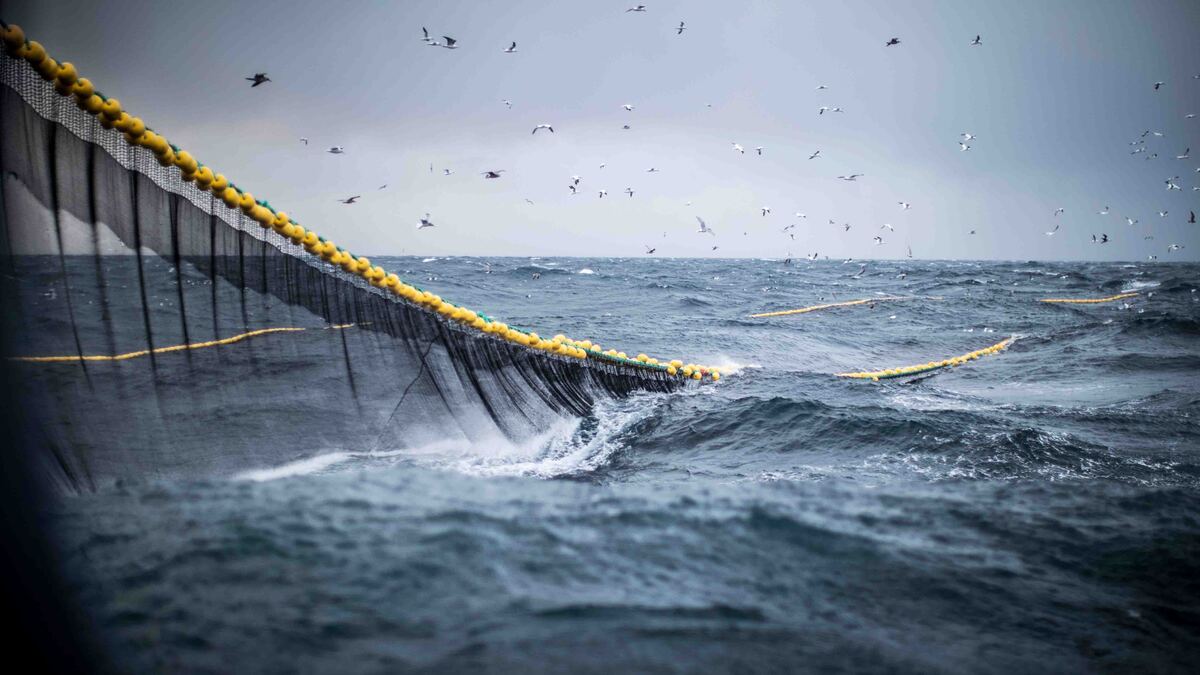Published:

Claims that bottom trawling releases more carbon than air travel have been debunked by a team of scientists.
In a ‘Matters arising article' to Nature, the co-authors, including Professor Michel Kaiser and Dr Marija Sciberras of the Lyell Centre, one of Heriot-Watt University's flagship Global Research Institutes (GRIs), scrutinised the findings of a recent academic paper, which claimed that industrial trawlers and dredgers are responsible for pumping out more than 1.47 gigatonnes of carbon every year, allegedly more than the carbon contributed by the global airline industry.
In ‘Protecting the global ocean for biodiversity, food and climate', published in 2021, authors Sala et al. calculate the amount of CO2 emissions that result from changes in the remineralisation rate of carbon caused through disturbance of sediment by heavy trawling nets. To address this, they suggest a series of stewardship actions, such as fishing exclusion zones in countries such as China, France and the UK, aimed at protecting marine life and reducing climate emissions.
However, the amount of carbon being released may not be as alarming as first thought, with doubts cast regarding the calculations printed in the original paper. In the newly-published letter, ‘Quantifying the carbon benefits of ending bottom trawling', the writers argue that trawling-induced CO2 release has been significantly overestimated by the original authors by not taking into account the important role of carbon composition and reactivity in different types of marine sediment. Whilst carbon in the first few centimetres of the sediment remineralises fast, carbon beyond that is less reactive sediment, and remineralises at a much slower rate, exponentially decreasing organic carbon release, which was not accounted for by the Sala et al. paper.
To generate a more realistic overview of how much carbon is being released, the group of scientists propose using a different formula that lowers the overall CO2 figure to allow for the deeper, less reactive sediment or, alternatively, only apply the current formula to the fraction of highly reactive ocean material that exists. Doing this, they argue, would provide a more realistic picture of overall carbon emissions and the measures required to tackle them.
Professor Michel Kaiser said: “We know that bottom trawling can disrupt the carbon cycling processes and biodiversity in the ocean and welcome further research into how this can be responsibly managed whilst supporting the fisheries industry. The Sala et al. paper highlights just how much we do not understand about carbon cycling in marine sediments”.
Implications in the paper that any disturbed sediment in the tested area is directly due to trawling alone, and not by any other environmental causes, such as storms or waves, is also a matter highlighted within the rebuttal.
Dr Marija Sciberras, said: “Without gathering data from untrawled control sites, it is not possible to properly address the question whether the release of carbon is increased by trawling”.
“To suggest that CO2 release could be reduced, and carbon credits generated, by reducing trawling activities is certainly up for consideration. However, further research into this area is crucial before we can make robust global projections of carbon emissions caused by trawling, and what measures we should introduce to address them. Failing to do so would generate unrealistic expectations.”
Dr Sciberras and Professor Kaiser have been funded by the Children's Investment Fund Foundation to undertake further research on this topic which is considered to be globally relevant. They are also collaborating with the authors of the original paper (Sala et al. 2021) to advance understanding of this topic.
The full list of authors are:
- Jan Hiddink: Bangor University
- Sebastiaan van de Velde: Department of Geoscience, Environment & Society, Université Libre de Bruxelles
- Robert McConnaughey: RACE Division, Alaska Fisheries Science Center, National Marine Fisheries Service
- Emil de Borger: Royal Netherlands Institute of Sea Research, Department of Estuarine and Delta Systems
- Justin Tiano: Royal Netherlands Institute of Sea Research, Department of Estuarine and Delta Systems
- Michel Kaiser: Lyell Centre, Heriot-Watt University
- Andrew Sweetman: Lyell Centre, Heriot-Watt University
- Marija Sciberras: Lyell Centre, Heriot-Watt University